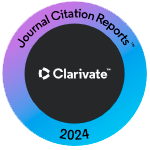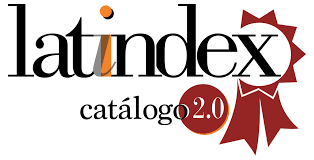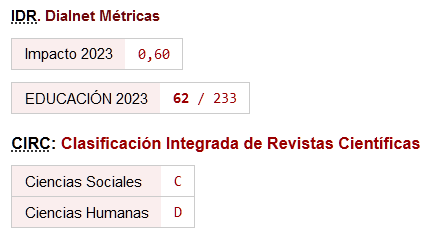Evaluando la capacidad de argumentación de maestros en formación inicial. Estudio de caso del proceso de disolución química
DOI:
https://doi.org/10.46661/ijeri.4968Palabras clave:
Disolución química, Argumentación, Maestros/as de infantil en formación inicial, Maestros/as de primaria en formación inicialResumen
La capacidad de argumentación científica de maestros/as en formación inicial (PST) en las primeras etapas de la educación es esencial, ya que proporcionarán a sus estudiantes la base inicial del conocimiento científico. Un total de 133 maestros/as de infantil (PSEC) y primaria (PSP) en formación inicial realizaron una actividad de argumentación sobre cómo tiene lugar el proceso de disolución. El diseño de esta actividad es un claro ejemplo de los diferentes niveles de complejidad de la capacidad de argumentación en ciencia. Los resultados muestran que los PSTs consolidan los niveles de identificación de pruebas y construcción de justificaciones en sus argumentos. Sin embargo, se encontró un menor desempeño en las capacidades de proporcionar una contra-crítica y construir contraargumentos. La prueba U de Mann-Whitney no mostró diferencias significativas entre los grupos en los niveles más altos de complejidad. Por el contrario, se encontraron diferencias estadísticamente significativas para la identificación de pruebas a favor de los PSPs.
Descargas
Citas
Akgün, A. (2009). The relation between science student teachers’ misconceptions about solution, dissolution, diffusion and their attitudes toward science with their achievement. Education and Science, 34(154), 26–36.
Aydeniz, M., & Dogan, A. (2016). Exploring the impact of argumentation on pre-service science teachers’ conceptual understanding of chemical equilibrium. Chemistry Education Research and Practice, 17(1), 111–19.
Berland, L.K., & McNeill, K.L. (2010). A learning progression for scientific argumentation: understanding student work and designing supportive instructional contexts. Science Education, 94(5), 765–93.
Bravo-Torija, B., & Jiménez-Aleixandre, M.P. (2018). Developing an initial learning progression for the use of evidence in decision-making contexts. International Journal of Science and Mathematics Education, 16(4), 619–38.
Burke, K.A., Greenbowe, T.J., 6 Hand, B.M. (2006). Implementing the science writing heuristic in the chemistry laboratory. Journal of Chemical Education, 83(7), 1032-1038.
Çalik, M., & Ayas, A. (2005). A comparison of level of understanding of eighth-grade students and science student teachers related to selected chemistry concepts. Journal of Research in Science Teaching, 42(6), 638–67.
Cetin, P.S. (2014). Explicit argumentation instruction to facilitate conceptual understanding and argumentation skills. Research in Science & Technological Education, 32(1), 1–20.
Çetin, P.S., & Eymur, G. (2017). Developing students’ scientific writing and presentation skills through argument driven inquiry: an exploratory study. Journal of Chemical Education, 94(7), 837–43.
Cigdemoglu, C., Arslan, H.O., & Cam, A. (2017). Argumentation to foster pre-service science teachers’ knowledge, competency, and attitude on the domains of chemical literacy of acids and bases. Chemistry Education Research and Practice, 18(2), 288–303.
Cullen, D.M. (2015). Modeling instruction: a learning progression that makes high school chemistry more coherent to students. Journal of Chemical Education, 92(8), 1269–72.
Driver, R., Newton, P., & Osborne, J. (2000). Establishing the norms of scientific argumentation in classrooms. Science Education, 84(3), 287–312.
Jiménez-Aleixandre, M.P. (2010). 10 Ideas Clave. Competencias En Argumentación Y Uso de Pruebas. 12. Graó.
Jiménez-Aleixandre, M.P., & Puig-Mauriz, B. (2010). Argumentación y evaluación de explicaciones causales en ciencias: el caso de la inteligencia. Alambique Didáctica de Las Ciencias Experimentales, 63, 11–18.
Juntunen, M.K., & Aksela, M.K. (2014). Improving students’ argumentation skills through a product life-cycle analysis project in chemistry education. Chemistry Education Research and Practice, 15(4), 639–49.
National Research Council. (2012). A framework for K-12 science education: practices, crosscutting concepts, and core ideas. The National Academies Press.
Osborne, J., Henderson, J.B., MacPherson, A., Szu, E., Wild, A., & Yao, S. (2016). The development and validation of a learning progression for argumentation in science. Journal of Research in Science Teaching, 53(6), 821–46.
Ozdem, Y., Ertepinar, H., Cakiroglu, J., & Erduran, S. (2013). The nature of pre-service science teachers’ argumentation in inquiry-oriented laboratory context. International Journal of Science Education, 35(15), 2559–86.
Stowe, R.L., & Cooper, M.M. (2017). Practicing what we preach: assessing “critical thinking” in organic chemistry. Journal of Chemical Education, 94(12), 1852–59.
Toulmin, S.E. (1958). The uses of argument. (2003rd ed.) Cambridge University Press.
Walker, J.P., Sampson, V., & Zimmerman, C. (2011). Argument-Driven Inquiry: an introduction to a new instructional model for use in undergraduate chemistry labs. Journal of Chemical Education, 88(10), 1048–56.
Walker, J.P., & Wolf, S.F. (2017). Getting the argument started: a variation on the density investigation. Journal of Chemical Education, 94(5), 632–35.
Zembal-Saul, C., McNeill, K.L., & Hershberger, K. (2013). What’s your evidence?: engaging k-5 students in constructing explanations in science. Pearson.
Descargas
Publicado
Cómo citar
Número
Sección
Licencia
Derechos de autor 2022 Daniel Cebrián-Robles, José Hierrezuelo Osorio, Antonio Joaquín Franco Mariscal , Isabel María Cruz Lorite

Esta obra está bajo una licencia internacional Creative Commons Atribución-NoComercial-SinDerivadas 4.0.












